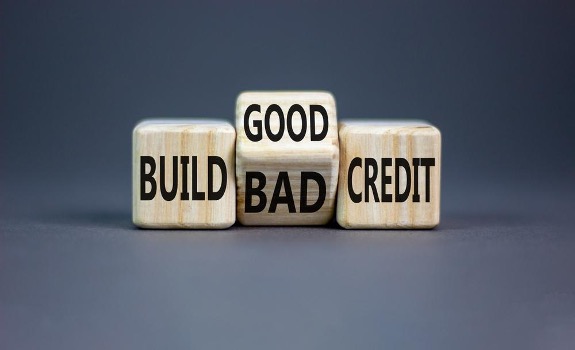 Given how important good credit scores are when applying for loans and mortgages, any negative changes can be especially worrying. Unfortunately, there are some situations where your score can fall unexpectedly. While it can be a scary experience, knowing the cause can help you address the problem directly and avoid similar drops in the future. If your credit score dropped and you aren’t sure why, here are five possible reasons you should be on the lookout for.
Given how important good credit scores are when applying for loans and mortgages, any negative changes can be especially worrying. Unfortunately, there are some situations where your score can fall unexpectedly. While it can be a scary experience, knowing the cause can help you address the problem directly and avoid similar drops in the future. If your credit score dropped and you aren’t sure why, here are five possible reasons you should be on the lookout for.
Reaching a Credit Limit
Reaching a credit limit on a credit card can potentially impact your score. When you max out your credit card, your credit utilization ratio — a key factor in credit scoring models — skyrockets. This ratio measures the amount of credit you’re using against your total credit limit.
A higher credit utilization ratio can signal to creditors that you’re a higher-risk borrower, leading to a few points being shaved off your FICO score. Because there’s no room for flexibility, the risk of a problem becomes imminent. As such, keeping your credit utilization low is a subtle art, crucial for maintaining a good credit score.
Missing and Late Payments
Late or missed payments can also stand in the way of a robust credit score. Your payment history forms a significant part of your credit profile, representing your reliability in meeting debt payments. When a payment on a loan or credit card is missed, it’s more than just a missed opportunity — it’s a red flag to credit bureaus.
This misstep can lead to your credit score dropping, as it directly affects the positive payment history reflected in your credit reports. A missed payment can create a blemish on an otherwise pristine record, which is why it’s important to always stay on top of payments.
Applying for a Loan
Applying for a new loan or mortgage may also influence your credit history. Each time you apply, a hard inquiry is made into your credit file by the lender, slightly denting your credit score. This is because frequent applications for new credit can indicate financial instability to lenders.
While this drop is usually small and temporary, it underscores the importance of strategic credit management. Your credit mix, including installment loans like auto loans or student loans and revolving credit like credit cards, plays a role here, illustrating your ability to handle various types of credit.
Closing a Credit Card
Closing a credit card account might feel like tying up a loose end — but it can unexpectedly nudge your credit score downwards. A closure can potentially shorten the average age of your credit accounts and increase your overall credit utilization ratio. The length of your credit history and the amount of available credit used are pivotal elements in your credit scoring.
This means that losing an account, especially a long-standing one, can remove a chapter from your credit history narrative and alter the way credit scoring models view your financial story. As such, you should never forget that every element of your credit history contributes to the overall picture of your financial health.
Identify Theft
While the likelihood of identity theft may not be high compared to the other problems listed above, it can nevertheless influence your credit score — a profound influence at that. Becoming a victim of identity theft can lead to unauthorized accounts being opened in your name, skyrocketing your credit utilization rate, and introducing missed payments or fraudulent charges.
This criminal interference can cause your credit score to plummet, as it creates inaccuracies in your credit report. Reporting identity theft immediately and placing a fraud alert with the major credit bureaus can help mitigate the damage. Regularly monitoring your credit reports is akin to keeping a vigilant eye on your financial fortress, ensuring its integrity against unwelcome intruders.
Need Help With Your Credit Account? Call Quality Credit Report Today!
If you’re struggling with credit card debt and poor credit scores, the team at Quality Credit Repair will be happy to help. In addition to credit repair services, we also offer debt management relief and more. For more information on how credit works, give us a call today